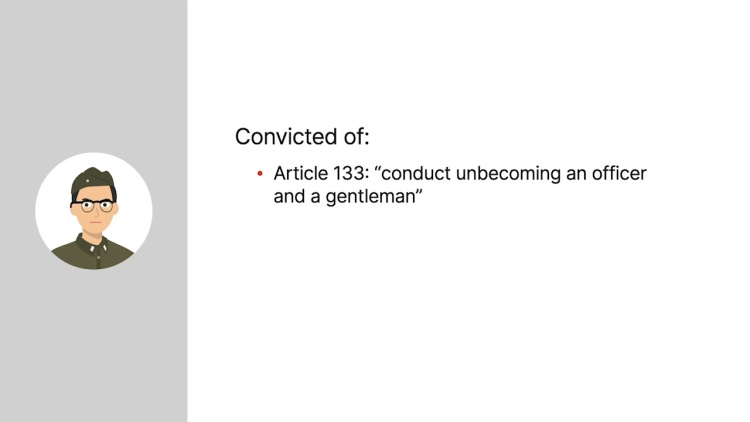Parker v. Levy
United States Supreme Court
417 U.S. 733 (1974)
- Written by Jamie Milne, JD
Facts
Physician Howard Levy (defendant) was a captain in the United States Army. During the Vietnam War, Levy disobeyed orders to establish a training program for aide men. Levy also made several public statements to enlisted personnel expressing disapproval of the Vietnam War and, more specifically, of how the United States was treating Black soldiers. Levy stated that if he were a Black soldier, he would refuse to fight because Black soldiers were purposefully being given the more hazardous positions and suffered higher casualties. In court-martial proceedings, Levy was convicted of multiple offenses, including violations of Articles 133 and 134 of the Uniform Code of Military Justice (UCMJ). Article 133 prohibited conduct unbecoming an officer and a gentleman, and Article 134 prohibited “all disorders and neglects to the prejudice of good order and discipline in the armed forces.” Levy was dismissed from service and sentenced to three years of labor. After appeals in the military system were unsuccessful, Levy filed a writ of habeas corpus in federal district court to challenge his conviction. The district court denied relief, but the court of appeals reversed, concluding that Articles 133 and 134 were void for vagueness. The United States Supreme Court granted review.
Rule of Law
Issue
Holding and Reasoning (Rehnquist, J.)
Concurrence (Blackmun, J.)
What to do next…
Here's why 905,000 law students have relied on our case briefs:
- Written by law professors and practitioners, not other law students. 47,100 briefs, keyed to 995 casebooks. Top-notch customer support.
- The right amount of information, includes the facts, issues, rule of law, holding and reasoning, and any concurrences and dissents.
- Access in your classes, works on your mobile and tablet. Massive library of related video lessons and high quality multiple-choice questions.
- Easy to use, uniform format for every case brief. Written in plain English, not in legalese. Our briefs summarize and simplify; they don’t just repeat the court’s language.





